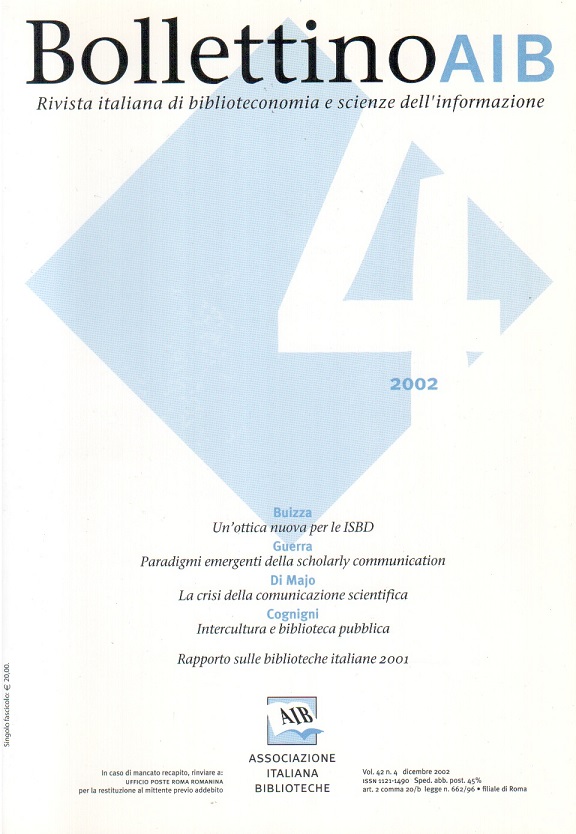The crisis of scholarly communication: how to solve it?
Main Article Content
Abstract
Since the last decades of the past century, libraries around the world have to face growing difficulties to carry out their traditional role in scholarly communication.Due to the increase of prices and quantity of scientific documentation, libraries' acquisitions and, as a consequence, their information's offer, can't maintain the level of the past.The main reason of this hard situation seems to be the monopolistic position acquired by commercial publishers in the market of scientific pubblications where they have, step by step, taken the position of scientific societies and universities.Several are the proposals for overcoming the crisis. Many libraries see in the development of consortia for acquisition of electronic resources the mean through wich they can cope with the information needs of their users. But, in front of the advantages, consortia present many risks, first and foremost that of strengthening publisher's power. The real solution, then, seems to put a stop to the publishers' monopoly. SPARK, an alliance between scientific societies, universities and research libraries, is a strong supporter of the development of market competition. Spark is available to give help to new publishing initiatives able to assure high quality of information together with more economic prices.Other proposals come directly from authors. Many researchers fight for the free availability of thescientific information through a general central archive (PubMed is an exemple) or decentralized communicating archives organized by each university or research insitute in wich they can auto-archive their works (Harnad, Odlyzko).Libraries must play a delicate role in favour of a reform assuring the free and wide circulation of scientific information: they can inform and sensibilize Faculty and scholars about the new opportunities; support the publishers that accept the new rules, subscribing to their journals; help the authors in the work of auto-archiving; acquire all the new skills needed for doing the traditional activities in a new way.
Article Details
Section
Articles

This work is licensed under a Creative Commons Attribution-ShareAlike 4.0 International License.
